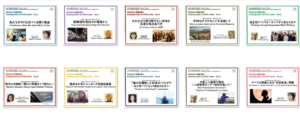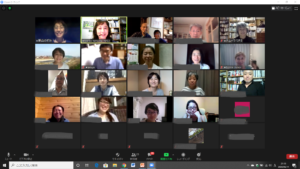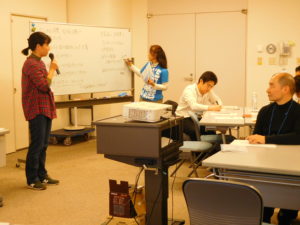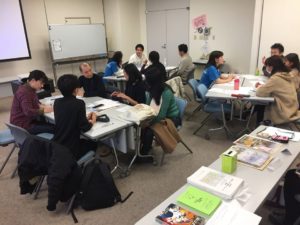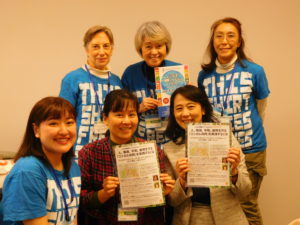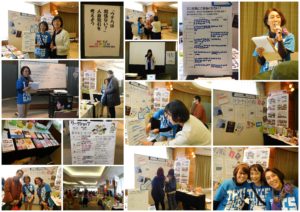On February 16, NFSJ participated in the Fair Trade Forum Musashino 2020 at the Seikei University in Kichijoji, Tokyo, and also participated in the Fair Trade Marketplace held at the same place.
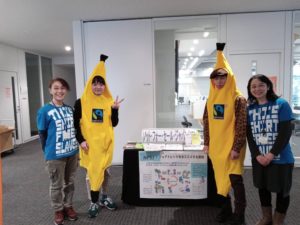
As we have reported in the NFSJ newsletter, Musashino City is now actively working towards Fair Trade Town Certification, which is a joint effort by the city government, businesses, shops, and civic groups to expand movement of fair trade. The “Fair Trade Forum Musashino 2020” was also the launch of the Fair Trade Town Musashino Promotion Council.
In the forum, Ms. Satomi Harada, one of the members of the Fair Trade Town movement who led Nagoya City to the certification and has been leading the activities since then, gave a keynote speech. Then, university students with ties to Musashino City presented their action plans of town planning, and a panel discussion on “Sustainable communities with bees” was held. The organizer initially expected about 100 people to attend, but the hall was almost full with 180 participants.
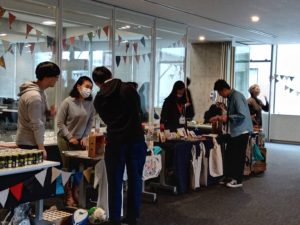
You may wonder “What does human trafficking have to do with fair trade?” One of the activities of NFSJ’s mission is to provide information to the general public to help them take small actions to eradicate human trafficking. The most frequently asked question at lectures and workshops is, “So what can we do to solve this problem?” Fair trade incorporates not only purchasing goods and raw materials from producers at a fair price, but also a variety of support to ensure that these people are guaranteed a livelihood and continue their economic activities. Buying fair trade products is a small step, but it can be a big movement if we do it together. That’s why we are inviting you to buy fair trade products and promote ethical consumption as one of the strategies to get involved in solving the problem of human trafficking.
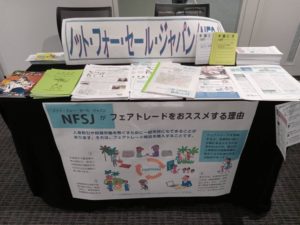
On that day, NFSJ handed out materials such as “Why NFSJ Recommends Fair Trade” flyers* with action cards asking stores to stock fair trade products, and the “Guidebook for Exploring Ethical Products*” to help people find ethical products by noticing various certification marks. The action cards in particular drew the interest of other fair trade shops; there was a lady who said, “We’ll hand them out at our booth too!” According to Ms. Harada, who gave the keynote speech, “People flock to things that are delicious, fun, glamorous and sparkling. This aspect is important for the spillover and sustainment of the social contribution activities.” Though human trafficking is a serious issue, it is important for NFSJ to experience and expand communication in such a sparkling event.
(*Although available only in Japanese, you may order copies of the Fair Trade Flyer and the Ethical Products Guidebook (leaflet). Please contact: japan@notforsalecampaign.org.)
